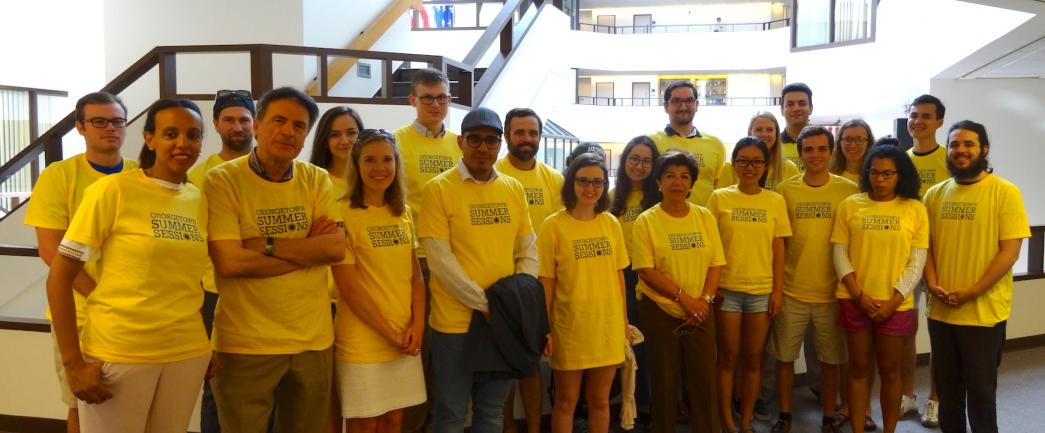Summer Persian Courses

The Persian Studies summer courses offer students the opportunity to acquire or master skills in reading, writing, listening, and speaking in Persian. Language instruction is proficiency-oriented and imparts cultural experiences and knowledge. The materials used are broad-based and help students develop skills for communication. Students learn how to accomplish language tasks in formal and informal situations. Assessments reflect the model of an educated native speaker as well as proficiency (American Council on the Teaching of Foreign Language: ACTFL) guidelines.
Classes are small and students benefit from individual attention inside and outside the classroom. Experienced, dedicated, and diverse faculty use current techniques and incorporate technology-based instruction. Summer courses provide real-time and on-demand access to current media resources and the latest in classroom language learning technology. They offer students a gateway to an exceptional academic community at Georgetown University, a range of summer activities in the Summer School, and state-of-the-art language opportunities.
For more information, and guidelines on how to register for Persian Studies summer courses, please visit the Summer School’s website.
Scholarships
Partial Tuition Scholarships are available for Visiting Students.
Graduate School Language Scholarships are available for Georgetown Graduate Students.
Consortium and Georgetown students are eligible to receive FLAS Scholarships, due to the intensive classes plus the extracurricular activities outside of the classroom that are part of the program.
Courses Offered
Intensive 1st Level Persian I & II
Persian for Arabic Speakers I & II
Intensive Intermediate Persian I & II
Program Highlights
Persian Studies summer courses are intensive and offer 3 hours of daily instructional contact for 4 days each week and award 6 credits. Optional cultural activities include field trips, Persian cuisine tasting, Iranian movie screenings, and more!
For more information, please contact Farima Mostowfi at fsm7@georgetown.edu.
Funded in part by the Shahrzad and Farhad Jalinous Endowed Fund for Persian Studies
